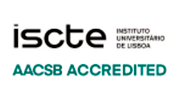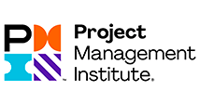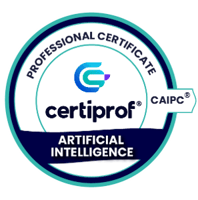A dual-track postdoctoral research programme bridging Europe and Asia — operated in partnership with AGS Paris and Hong Kong University

These themes are available in both tracks, though regional focuses may differ — for example, francophone academic publishing (Paris) or Asian market innovation (Hong Kong).
Examples of research in this area often focuses on how businesses can leverage data analytics and artificial intelligence to gain a competitive edge. There is an increasing emphasis on understanding the dynamics of digital transformation and its impact on traditional business models. Researchers are exploring how strategic alliances, especially in a global context, can enhance competitiveness. The role of innovation as a key driver of competitive strategy is also a significant focus, analyzing how businesses can adapt and thrive in rapidly changing markets.
Examples of research could be towards integrating ethical considerations into the corporate governance framework. Research is increasingly examining the impact of governance structures on corporate social responsibility, sustainability, and ethical decision-making. The role of technology in improving transparency and accountability in governance practices is also a key area of interest, along with the ethical challenges posed by emerging technologies like AI and blockchain in corporate settings.
Examples of research could be exploring the intersection of entrepreneurship and global market dynamics, particularly how startups can scale and compete internationally. The role of innovation ecosystems, including incubators and accelerators, in supporting entrepreneurship across different cultures and economies is a hot topic. Additionally, there's a focus on how globalization affects entrepreneurial strategies and how startups contribute to global economic development.
Examples of research here could be focused on digital marketing strategies, particularly the use of big data and machine learning to understand and predict consumer behavior. There's a growing interest in the psychology of consumer behavior in online environments, social media marketing, and the impact of emerging technologies like augmented reality and virtual reality on consumer experiences. The study of personalized marketing and its ethical implications is also gaining traction.
Examples of research here on the integration of advanced technologies like IoT, AI, and robotics in operations management. The research is geared towards improving efficiency, reducing costs, and enhancing quality in production and operations. Supply chain optimization, particularly in the context of global disruptions, is a critical area of focus. There's also a growing interest in the role of sustainable practices in operations.
Examples of research here could include the application of fintech solutions to traditional financial processes, the impact of cryptocurrencies on financial markets, and the integration of sustainable finance into mainstream investing. Research is also focused on economic modeling in the face of global uncertainties, such as pandemics and climate change, and the implications for financial management practices.
Examples of research here could focus on the impact of remote and flexible work arrangements on organizational culture and productivity. Diversity, equity, and inclusion in the workplace are major areas of study, as are the implications of AI and automation for workforce management. There’s also interest in leadership development in the digital age and the psychological aspects of employee engagement and motivation.
Examples of research here could centered on how businesses can integrate sustainability into their core strategies, not just as a compliance measure but as a driver of innovation and long-term profitability. The role of ESG criteria in investment decisions and company valuations is a growing area of focus.
Are you interested in investing a year of your life in order to attain a Postdoctorate Certificate without having to put your professional career on hold? Consult the brochure and should you wish to speak to an advisor, kindly schedule a meeting, and we will be happy to contribute to your best possible decision.

Non-Chinese resident candidates are encouraged to apply for the International Research Track (AGS Paris).
Chinese nationals or residents should apply for the Asian Research Track (Hong Kong University).
Academics or professionals with a doctorate degree
in management or related field.
For everyone who wants to succeed in pursuing a brilliant
academic and cutting-edge research career in Higher Education, anywhere in the world.
Applicants should specify their preferred research track in the online form.
- Completed application form
- Curriculum Vitae detailed
- Project Research proposal
- Letters of recommendation
Each track includes three thematic research seminars:
- In Paris: focus on francophone research and publication culture.
- In Hong Kong: focus on Asian research methods and publication strategies.























 Garantimos o cumprimento de todas as regras de segurança nas nossas instalações, comprovada pela atribuição do selo do ISQ
Garantimos o cumprimento de todas as regras de segurança nas nossas instalações, comprovada pela atribuição do selo do ISQ